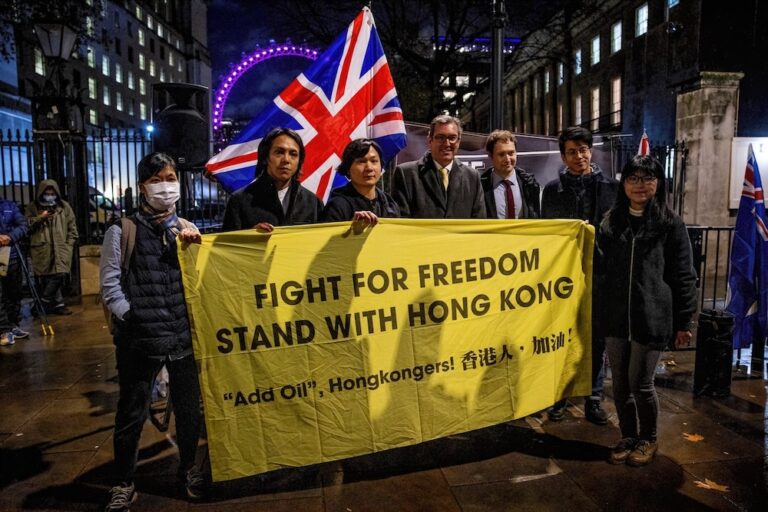Assange will be allowed to appeal on two of nine grounds his legal team put forward at a hearing in February, both related to the possibility that, as an Australian citizen, he could be denied free speech protections afforded by the First Amendment.
This statement was originally published on rsf.org on 20 May 2024.
In a long awaited positive step, on 20 May the UK High Court granted Julian Assange the right to appeal his extradition to the United States to face trial and possible imprisonment for life for publishing leaked classified information. Reporters Without Borders (RSF) welcomes the decision, which gives the WikiLeaks publisher a final chance in the UK courts to stop his extradition and challenge US assurances that he would face a fair trial.
Assange will be allowed to appeal on two of nine grounds his legal team put forward at the Day X hearing in February, both related to the possibility that, as an Australian citizen, he could be denied free speech protections afforded by the First Amendment. The court refused permission to appeal on the basis that he could face the death penalty, after receiving what it deemed satisfactory assurances from the US government that he would not. The six other grounds for appeal had already been dismissed in March.
“This decision marks an important milestone in Julian Assange’s legal case, opening up a vital new path to prevent extradition. The two grounds for appeal that have been granted mean that, for the first time in three years, the UK courts will consider the issues at the very heart of this case, related to freedom of expression and the First Amendment. We urge the UK to act in the interest of journalism and press freedom and refuse to further enable this dangerous prosecution.”
Rebecca Vincent, RSF Director of Campaigns
In April, the US government provided written assurances that Assange would be allowed to “raise and seek to rely upon” the rights and protections given under the First Amendment, though noted that it would ultimately be for a US court to decide. Assange’s legal team described these assurances as “blatantly inadequate”, given the absence of an explicit promise from the US prosecutor that he would be afforded the protections.
Announcing their decision, judges Dame Victoria Sharp and Mr Justice Johnson – who previously said Assange had a “real prospect of success” on appeal on the two grounds granted – gave the parties until 2 pm on 24 May to submit a draft order. A date for the appeal has not yet been set.
Assange’s health raises concerns
Assange was not present in court, reportedly not well enough to attend despite having been granted permission to do so. He has spent the past five years held on remand in London’s high security Belmarsh prison as the extradition proceedings continue. RSF representatives have been able to visit him five times in prison since August 2023, and have noted concerns about his state of mental and physical health in detention.
Interest in the case remains high. Journalists and other observers filled two overflow court rooms, and outside the building scores of supporters cheered when news of the verdict reached them. For Assange’s supporters, it was the first good news in the case since January 2021, when District Judge Vanessa Baraitser ruled against extradition on mental health grounds. Her decision, though, was overturned in December 2021 following US diplomatic assurances about his potential treatment if extradited. The Supreme Court refused permission to appeal in March 2022, and in June that year then UK Home Secretary Priti Patel signed the extradition order. Assange’s initial appeal against the order was rejected in a short written decision in June 2023, leading to this final application to appeal.
If extradited to the US, Assange faces up to 175 years in prison on 18 counts related to WikiLeaks’ publication in 2010 of more than 250,000 leaked classified military and diplomatic documents. Assange would be the first publisher extradited under the Espionage Act – which lacks a public interest defence – setting a dangerous precedent that could be applied to any journalist or media organisation anywhere in the world. The leaker of these materials, former Army intelligence analyst Chelsea Manning, served nearly seven years in prison before President Obama commuted her sentence, stating it was disproportionate.
RSF has been the only NGO to monitor all four years of extradition proceedings against Assange. RSF representatives have also gained rare access to visit Assange in Belmarsh prison, after initially being barred. In parallel to the extradition proceedings in the UK, RSF has also advocated directly with the US government and continues to urge the Biden administration to find a political solution to the case to prevent Assange’s extradition and allow for his release from prison without further delay.
The UK and US are respectively ranked 23rd and 55th out of 180 countries in RSF’s 2024 World Press Freedom Index.



